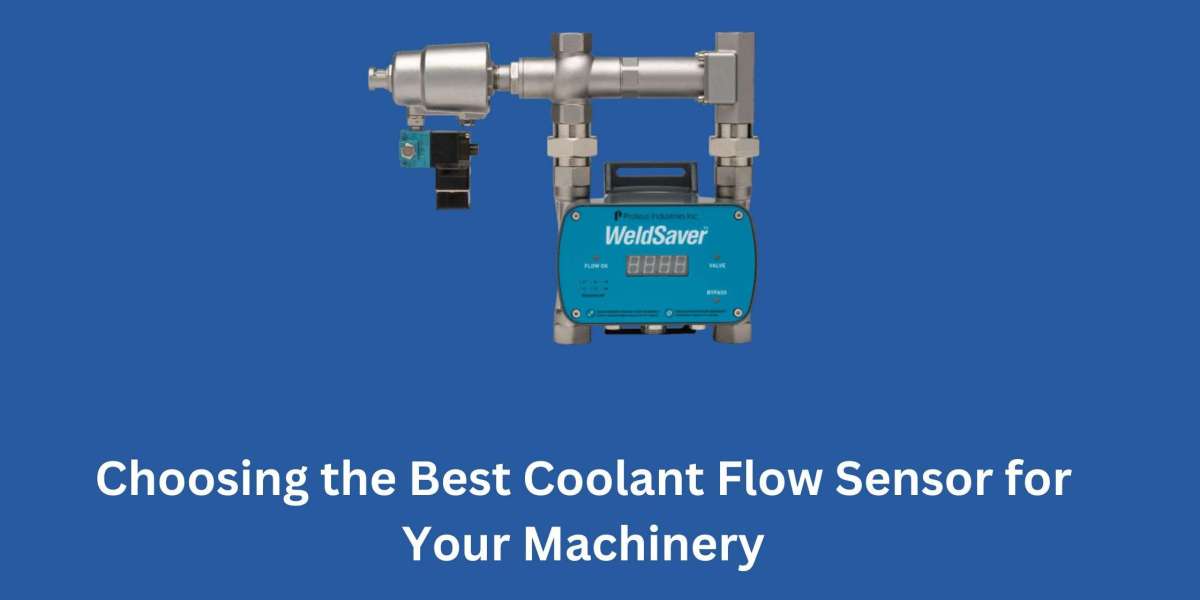When it comes to ensuring the optimal functioning of machinery, monitoring and maintaining the proper coolant flow is paramount. Coolant systems are essential for preventing overheating and maintaining operational efficiency in various industrial applications, from manufacturing machinery to heavy equipment. One of the critical components in any coolant system is the coolant flow sensor. This device helps monitor the flow of coolant through the system, ensuring that it flows at the correct rate to prevent damage and maintain the machine's overall performance. Choosing the best coolant flow sensor for your machinery can significantly impact its longevity and reliability.
Understanding the Importance of Coolant Flow Sensors
A coolant flow sensor is an essential device that monitors coolant flow throughout a system. This technology is crucial for preventing overheating and ensuring the machinery operates efficiently without thermal damage. Without a proper sensor, you may experience irregular coolant flow, leading to overheating, which can cause expensive damage to the machinery and its components.
Key Features to Look for in a Coolant Flow Sensor
Selecting the proper coolant flow sensor requires considering various factors influencing performance and suitability. Some of the key features to evaluate include:
- Accuracy: The sensor's accuracy is crucial in ensuring the coolant flow is monitored correctly. Inaccurate readings can lead to improper system adjustments and potential damage to the equipment.
- Durability: Machinery operates in harsh environments, and the coolant flow sensor needs to be built to withstand vibrations, extreme temperatures, and exposure to chemicals. Look for sensors constructed from robust materials, such as stainless steel or corrosion-resistant alloys.
- Response Time: In high-speed operations, quick feedback from the sensor is essential. Choose a sensor with a fast response time to detect changes in flow rate immediately and allow for swift corrective actions.
- Compatibility: The coolant flow sensor must match your machinery's specific coolant type and operating conditions. Ensure that the sensor is designed to handle the viscosity, temperature, and pressure of the coolant used in your system.
- Ease of Installation: An easy sensor to install and integrate into your existing system will save time and reduce maintenance complexity. Look for sensors with simple mounting options and user-friendly installation instructions.
Benefits of Using a Coolant Flow Sensor
Using a coolant flow sensor provides several benefits that can enhance the performance of your machinery:
- Prevents Overheating: One of the most significant advantages of using a coolant flow sensor is its ability to prevent overheating by ensuring that coolant flows correctly. Overheating can cause significant damage to machinery, leading to expensive repairs and downtime.
- Improves Efficiency: A sensor monitoring coolant flow ensures the system runs optimally, avoiding energy waste and unnecessary wear on components.
- Extends Equipment Life: Regular monitoring of coolant flow can help detect early signs of potential problems, allowing for timely maintenance and repairs. This proactive approach extends the life of your machinery and minimizes costly breakdowns.
- Reduces Maintenance Costs: A coolant flow sensor helps identify issues before they escalate, saving you money on repairs and maintenance. By detecting irregularities early, you can address problems before they cause significant damage.
Applications of Coolant Flow Sensors
Coolant flow sensors are widely used in various industries and applications. Some of the most common areas where these sensors are used include:
- Manufacturing and CNC Machines: Machinery often runs at high speeds and under heavy loads. A coolant flow sensor ensures that the coolant is flowing at the correct rate to prevent overheating and ensure smooth operation.
- Automotive Engines: Automotive engines require precise coolant flow to avoid engine damage. Coolant flow sensors help monitor and regulate coolant flow, preventing overheating and ensuring engine longevity.
- HVAC Systems: In HVAC systems, coolant flow sensors are used to monitor the flow of refrigerants, ensuring that the system is operating efficiently and preventing potential damage due to insufficient coolant flow.
- Industrial Equipment: Industrial machinery often requires specific coolant flow rates to ensure safe operation. These sensors are used in various types of industrial equipment, including pumps, heat exchangers, and hydraulic systems.
Conclusion
Choosing the best coolant flow sensor for your machinery is essential for ensuring its proper operation and longevity. By understanding these sensors' types, features, and benefits, you can make an informed decision that meets your machinery's needs. Whether you're working with industrial equipment, automotive engines, or HVAC systems, selecting the correct coolant flow sensor can prevent costly damage, improve efficiency, and extend the life of your machines.
FAQs About Coolant Flow Sensors
1. What is the primary function of a coolant flow sensor?
A coolant flow sensor monitors the flow of coolant through a system, ensuring that the coolant is circulating correctly to prevent overheating and damage to machinery.
2. How do I know if my coolant flow sensor is malfunctioning?
Signs of a malfunctioning sensor include erratic coolant flow, system overheating, or failure to receive accurate data from the sensor. Regular testing and monitoring can help identify sensor issues.
3. Can I use a single coolant flow sensor for multiple machines?
It depends on the type of sensor and the machinery requirements. Some sensors can be used for multiple systems, while others are designed for specific applications.
4. How often should I replace my coolant flow sensor?
The replacement frequency depends on sensor quality, environmental conditions, and usage intensity. Typically, sensors should be inspected annually and replaced every 3 to 5 years.
5. Are coolant flow sensors compatible with all coolant types?
Not all sensors are compatible with every type of coolant. Check the sensor's specifications to ensure it suits the type of coolant used in your system.







